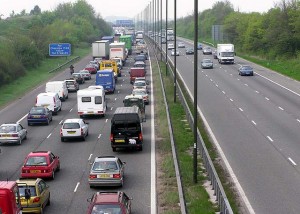There are a number of factors that affect the car insurance premium that you pay each month with these being based upon the risk to the insurance company. For instance, if you own a 4 litre sports car costing £50,000 that is going to cost more to insure than if you drive a small family hatchback with a 1 litre engine that you paid £10,000 for.
In the above example, the risk is greater with the first car because the insurer would have to pay out more if you were responsible for the accident and the car were written off and also because it has a more powerful engine so is more likely to be responsible for an accident and also more appealing to a car thief.
The amount of miles that you do each year also have an impact on your car insurance premiums but why is this? You may argue that if you travel a lot of miles each year that you are an experienced driver who is used to dealing with all the hazards that you come upon but this is not the case as far as the insurance company is concerned.
Quite simply, the more miles that you travel on the road network each year means that you are at greater risk of being involved in an accident whether that is your fault or caused by another motorist. After all, if you only took your car out for a drive on a Sunday and did a couple of thousand miles a year you are much less likely to have an accident than someone who uses the car every day of the year and commutes to work in a city between Monday to Friday and does 30,000 miles per annum.
In the latter case, there will be more cars on the road than on a Sunday afternoon so the risk is higher and surely you would agree that the car insurance premium should reflect this.
Therefore, when applying for car insurance you should make sure that the figure you provide estimating the mileage you will do each year should be realistic. Not only may it affect the premium but it could also affect a claim should you, for instance, have said you only did 5,000 miles a year but actually travelled 30,000 miles per annum.




